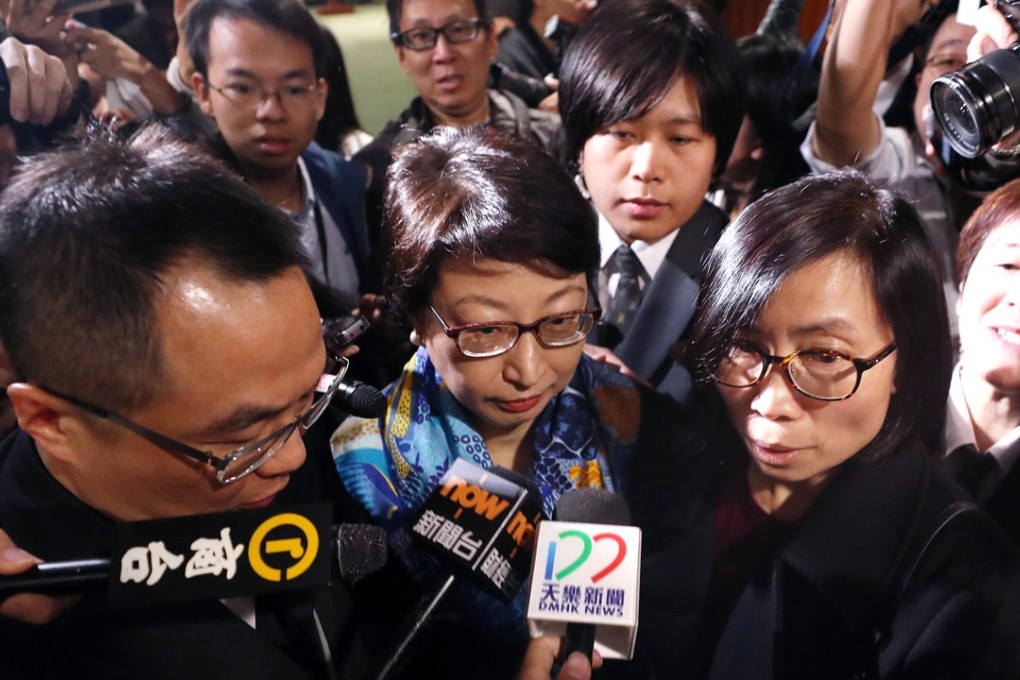Advertisement
No timetable for reforms on prosecuting power, Hong Kong justice chief says
Controversial jailing of three pro-democracy student activists last year reignited calls for change
Reading Time:2 minutes
Why you can trust SCMP

Calls for greater independence for Hong Kong’s prosecutor from his or her politically appointed superior were brushed aside by the government on Wednesday, with it saying there was no “timetable” to push ahead with such reforms.
The stance was made clear by embattled Secretary for Justice Teresa Cheng Yeuk-wah, who herself might face possible prosecution over illegal structures at her residence.

Advertisement
The call for the justice minister – a politically appointed position – to relinquish his or her prosecuting power to the director of public prosecutions (DPP) was reignited last year following the controversial jailing of three pro-democracy student activists.
‘I’m not without integrity,’ Hong Kong’s scandal-plagued justice chief Teresa Cheng tells lawmakers
News reports suggested Rimsky Yuen Kwok-keung, Cheng’s predecessor, had overruled his top prosecutors to press for harsher sentences for the student leaders, including the Occupy movement’s poster boy Joshua Wong Chi-fung, despite the trio originally being spared jail.
Advertisement
Advertisement
Select Voice
Choose your listening speed
Get through articles 2x faster
1.25x
250 WPM
Slow
Average
Fast
1.25x